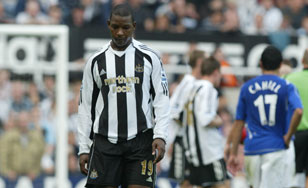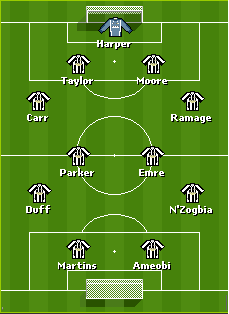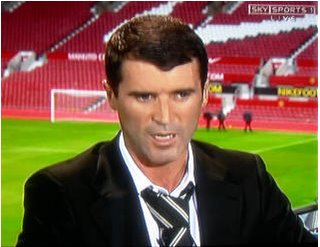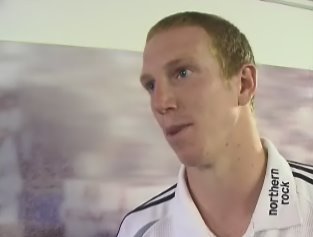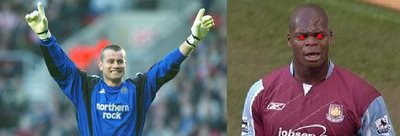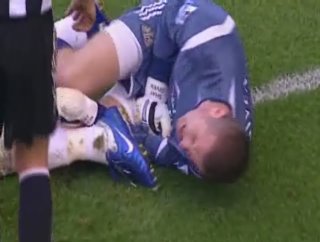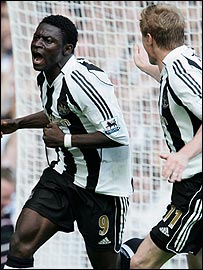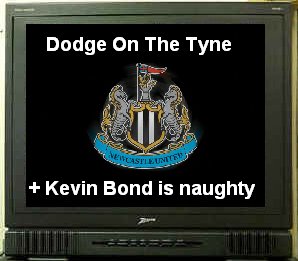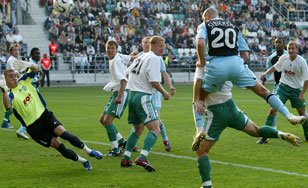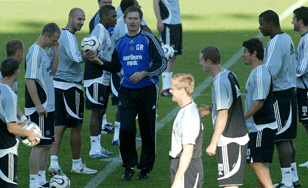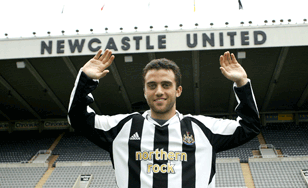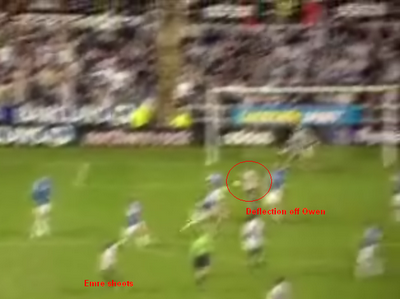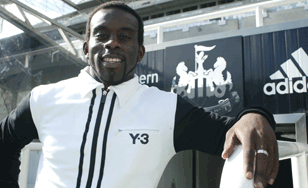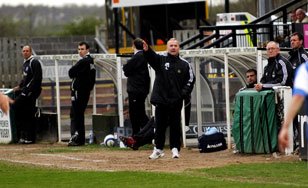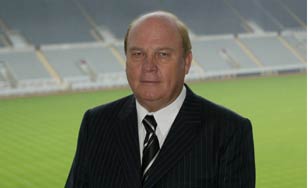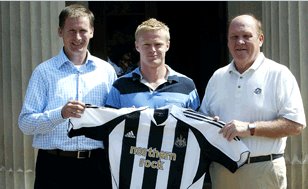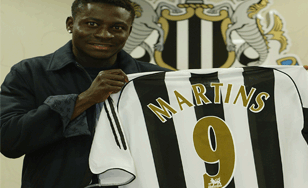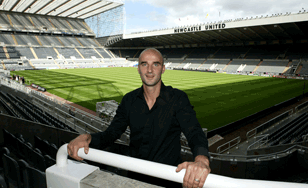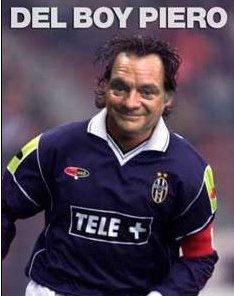
The Guardian on Wednesday:
Last week I revealed that Newcastle United had been found by a VAT and Duties tribunal to have systematically lied to the Football Association about the club's transfer dealings between 2001 and 2003. The tribunal also ruled that some of British football's top agents made false statements to the FA when registering transfers.
This week, I can name those agents. They include First Artist, run by brothers Jon and Paul Smith; Paul Stretford's Proactive agency; SFX, which represents Alan Shearer; Jonathan Barnett's agency Stellar, which acts for Kieron Dyer and Titus Bramble, and Key Sports, which represents Shola Ameobi.
On the official forms, G2 and H1, which clubs are required to lodge with the FA to register new signings or new contracts, Newcastle and the agents stated that the agents had acted solely for the club when in fact they were the players' agents. Newcastle did this to avoid being seen by the FA to have breached one of football's main rules governing agents' conduct, that agents are allowed to act for only one party in a deal. The rules were established by the world governing body, Fifa, to avoid conflicts of interest and to try to ensure fair dealing and it is the FA's responsibility here to uphold them.
The tribunal judgment could hardly have been more emphatic. It said the agents were: "In breach of [the Fifa] regulations, having failed to adhere to [the agents'] Code of Professional Conduct, by behaving untruthfully."
The tribunal ruled that 21 of 24 player deals were carried out in the same way. The club approached the player's agent, asked him to persuade the player to sign for a financial package which suited the club, then paid the agent according to how close he came. The player, signed up to be represented exclusively by his agent, did not know that the agent had come to such an arrangement privately with the club.
Newcastle took the view that having conducted deals in that way, the agents were acting for both the club and the player, even though this was a breach of the Fifa rule. However, to avoid the FA being alerted to this breach, Newcastle and the agents made false declarations on the official forms to the FA, claiming that the agents had acted solely for the club, and not for the player.
The tribunal explained how this worked in each deal, giving substantial details about one transfer, of a player who went to St James' Park in 2001. The players' identities were not given in the judgment but the agents were named. In that transfer, Newcastle paid £35,250 to First Artist, for, the club said, "acting for and on behalf of" the club.
The G2 form, to register the transfer with the FA, signed by the club and the agent, stated that Jon Smith, of First Artist, had acted for Newcastle United in the deal. There is another part to the form which an agent signs if he acted for the player. That was left blank.
Newcastle also made a "Declaration" stating that First Artist had acted as the club's agent and was being paid under a written agreement, another Fifa requirement. The tribunal said: "We find [that agreement] to be non-existent."
Following new contract negotiations for the same player, Newcastle paid First Artist a further £32,250. Another Form G2 was lodged with the FA, stating that Phil Smith had acted this time, again for Newcastle United. The part which would have been filled in had First Artist admitted acting for the player was again left blank.
A declaration was made to the FA, identifying First Artist as the club's agent under a written agreement, which again the tribunal found to be "non-existent".
Newcastle argued that the agents were acting directly for both the club and the players, and so wanted to reclaim the VAT on the fees paid to the agents. Russell Cushing, Newcastle's chief operating officer, argued in court that the Fifa rules are routinely ignored and "do not reflect the global business we are now operating in".
The tax authorities undertook an investigation into how the deals were done, as they have at several other clubs. They wrote to First Artist asking about the player transfer, in which all the official forms had stated that the agents acted for the club. On April 18 2006, First Artist replied to the authorities: "Please note First Artist Corporation were acting on behalf of the player."
Other deals done in the same way and involving what the tribunal found to be false statements on FA documentation included six deals by Stellar, the negotiation of a new player's contract by Key Sports and the signing of two players represented by Proactive, for which the agency was paid £200,000 and £300,000.
SFX, one of the game's most high-profile agencies, acted in three transfers. In two, the tribunal found the forms were falsely completed to state that SFX acted for the club alone, not the players, who were the agency's clients. In the third the declaration lodged with the FA said Newcastle had agreed to pay Tony Stephens, a senior SFX agent, £160,000 "in accordance with the written agreement" between him and the club. The tribunal found there was no such written agreement.
Of all these agencies I contacted, none would comment except Jon Smith of First Artist. He would not talk directly about this case, but said that in general, First Artist tries to abide by football's rules. "However, the rules do not always work," he argued. "Very often we do act for the player and the club quite legitimately, yet the rules say we can't and they are unworkable."
Cushing admitted in his evidence that the forms lodged with the FA were "technically incorrect", and even that the club did this to avoid the FA seeing that its rules were being broken. Newcastle's argument is that the regulations against agents acting for both sides, and the official paperwork, do not reflect the reality that agents do act for player and club simultaneously in this way.
In a statement last week, Newcastle insisted that in all these deals they had "engaged the services of the agents" and the forms to the FA were filled in "accordingly".
The club are adamant they intend to appeal the tribunal's decision that the agents in law acted solely for the players and that Newcastle's £550,000 VAT payments cannot be reclaimed.
The FA is responsible for upholding football's regulations, yet the governing body is still reluctant to comment because Newcastle are planning to appeal. This despite the fact that Newcastle freely offered the evidence that they routinely broke the Fifa rule and made false statements to the FA itself.
An FA spokesman said: "We will wait until the matter is concluded before looking into any possible breach of the rules."
Uh oh.





